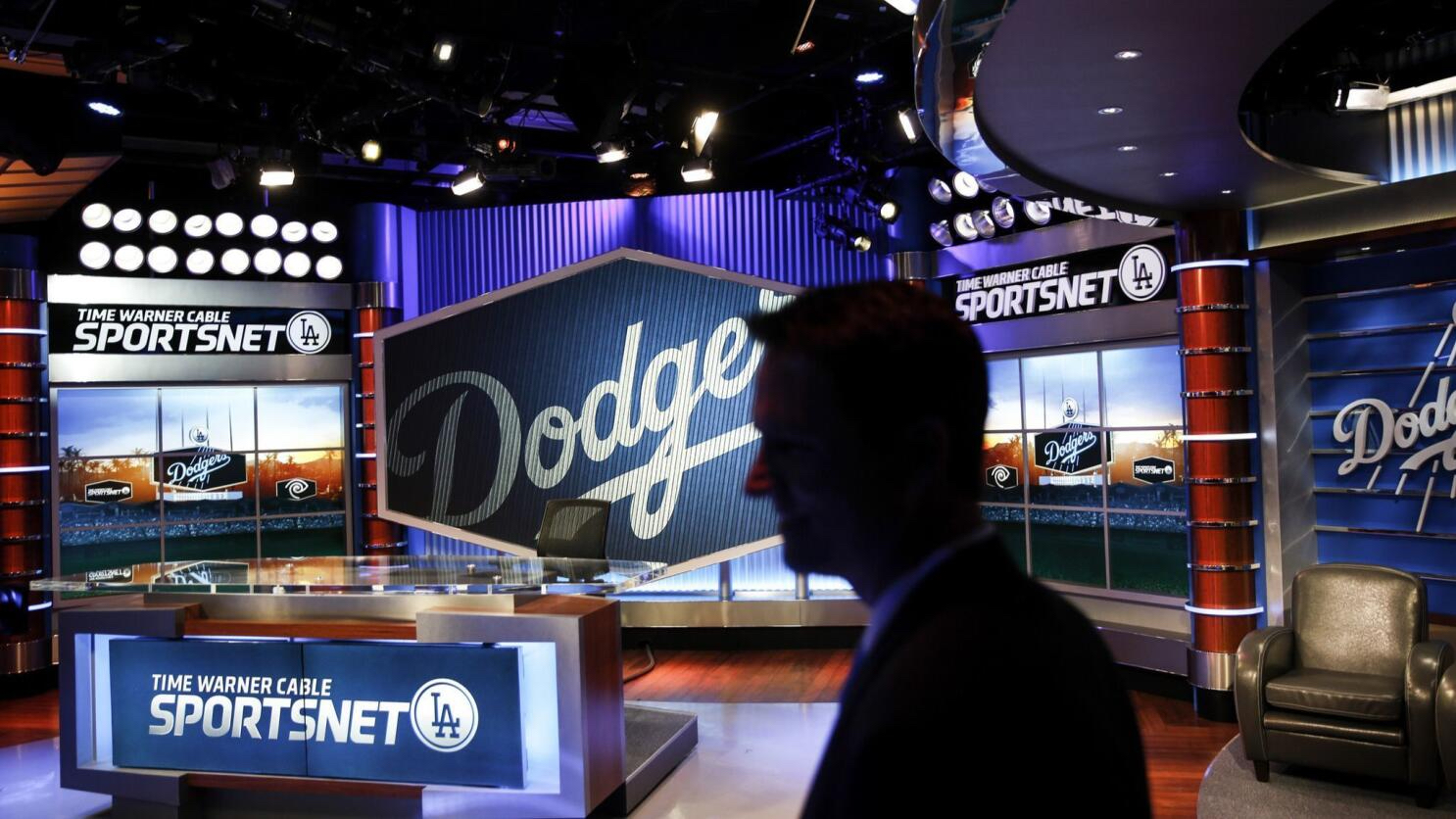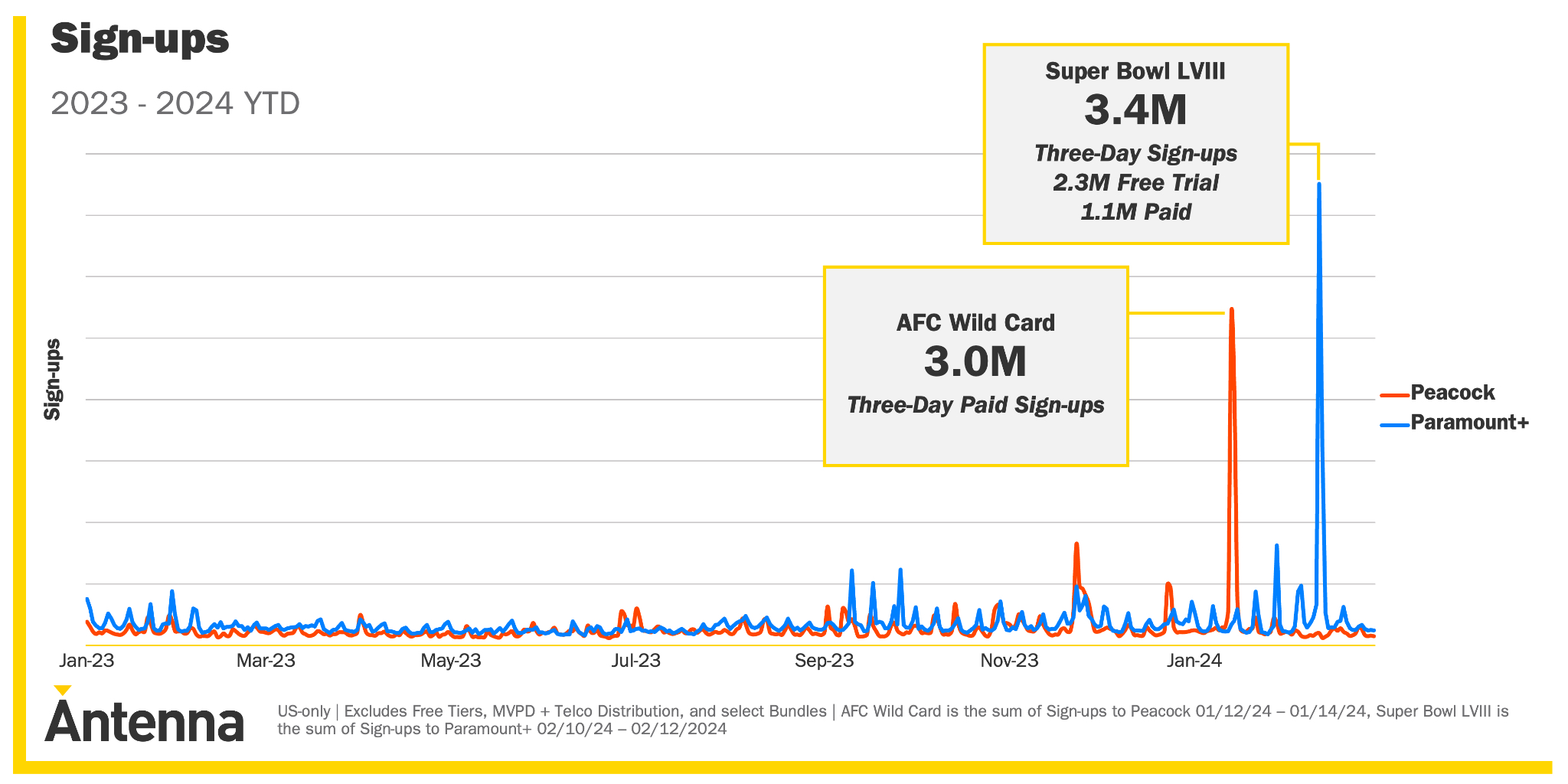By ‘DTC,’ They Meant ‘Direct to Charter’
In this week’s ‘Next Text,’ we call out the Dodgers’ RSN distribution, Warner's far-fetched DC ambitions, and (of course) Shari’s latest offer

The smarter way to stay on top of the streaming and OTT industry. Sign up below.
You are now subscribed
Your newsletter sign-up was successful
Each weekend, Next TV writers Daniel Frankel and David Bloom put down their golf clubs, fishing poles and assault rifles to engage in a focus-bereft discussion about the most important matters in technology, media and telecom.
DANIEL FRANKEL: Hello, Big D. I was just watching Max’s new trailer for The Penguin. Quite a metamorphosis for Colin Farrell. And it’s definitely intriguing. We’ve been all over Zaz's (bloody) business model. But he has a lot riding on what comes next content-wise. Warner just announced its European expansion plan, which is hooked on season two of House of the Dragon and Paris Olympics rights. Been a year since The Last of Us wrapped season one. Seems like they could use a hit right about now.
DAVID BLOOM: The Penguin marks quite the transformation for Irish former heartthrob/lovable rogue Colin Farrell, no doubt. The show is a big swing, and perhaps a metaphor of transformation for more than Farrell, as WBD tries to remake DC into Marvel circa 2015 and the company as a whole into a sustainable business not consumed by bottomless debt and endless cuts. I’m slightly amazed that Zaz, or new DC sheriffs James Gunn and Peter Safran haven’t killed The Penguin because it originated under a previous regime and franchise strategy. It’s important to note that WBD’s Olympic rights are for Europe only, inherited from its Euro sports network. But having the games in Europe while they’re being played in Europe could give EuroMax a crucial kick-start, especially if House of the Dragon season two translates to European sensibilities, too.

Just remember that Comcast was hoping to do the same thing in the United States with Peacock and the Tokyo Games four years ago. Then that little globe-girdling epidemic pushed everything back a year, and left Peacock adrift with too little programming that anyone cared about. I don’t think the Bird has recovered yet. I’m intrigued by some of the non-typical hosts Comcast lined up for the U.S. broadcast: Peyton Manning and Kelly Clarkson for the Opening Ceremony (also to be shown in IMAX theaters as a flotilla of athletes float down the Seine), and Snoop Dogg dropping reports (and rhymes, we can hope) into the primetime coverage). A little Gin & Juice with your French 75, perhaps, with Zaz’s mind on his money and his money on his mind? Just don’t be messin’ with the 8-track.
FRANKEL: Sorry for the delayed response. Just got back from an exciting City Section Western League barn-burner. Palisades Baseball held off the No. 1 offensive team in the City Section, 8-4, to keep their hopes alive for an eighth consecutive league title ... Oh, you're asking about the starting pitching? … Some dude named Reece Frankel allowed two runs and four hits while striking out six over five innings to get the win. But I digress ... Slightly. Last summer, Charter Communications promised Lakers and Dodgers fans out here in Los Angeles that it would “launch a direct-to-consumer (DTC) alternative for its own regional sports networks.”
Also Read: Charter Starts Delivering Live Dodgers Games Free to Spectrum One Customers
They did that last fall for the Lakers — you could pay $19.99 for DTC streaming, no matter what kind of telecom arrangement you have. But for the Dodgers, Charter announced last week that its Spectrum One customers — those who take internet and mobile in a bundle — can get the service without a pay TV subscription, through MLB.tv. Everyone else still has to pay for linear video. That doesn't seem like DTC to me.
The smarter way to stay on top of the streaming and OTT industry. Sign up below.
BLOOM: Your confusion stems from a misunderstanding of what DTC means. In this case, it stands for direct-to-Charter, as in Dodgers fans keep paying them no matter what. For the Dodgers, it sustains a lucrative yet loony partnership that finances astonishing nine-figure, 40-year deals with superstars such as Shohei Ohtani (and soon, no doubt, Reece Frankel). Sports Illustrated, still somehow alive, did a smart piece (which I can’t seem to find anywhere but on Apple News Plus) detailing second-level effects of the collapse of most regional sports networks. Yes, Diamond limps along, still making at least some team payments this year. The league is televising other teams’ games. But if you’re a baseball team that can’t count on more than one year of RSN payments, you can’t make long-term deals for most of your players. The ones who get hurt worst? Mid-level journeymen such as Tommy Pham, who can’t find a deal a week before the season starts. This feels like the first pinprick in the sports-TV rights balloon. What say you, O Proud Papa Coach? Ready to put me in center field?
FRANKEL: Baseball salaries in particular are wacky. Game vs. game, viewership and engagement for Major League Baseball and the NFL aren’t even close, but MLB players command an average salary of $4.03 million vs. $3.26 million for the NFL, according to Statista. And I’ll take a ruined ulnar collateral ligament over CTE any day. Still, it was quite a flex by the NFL’s top business and media executive, Brian Rolapp, when he appeared last week at The Washington Post’s Futurist Summit in D.C.

He was asked about Spulu at one point. His response could have just as well been, “Oh, that little thing?” Rolapp suggested that if consumers really want value, they should subscribe to YouTube TV, which has the “all the NFL” vs. about half for Spulu. I wasn't aware that YouTube TV included Amazon Prime Video, but whatever. The NFL doesn't like this joint venture.
.@brianrolapp on Disney, Fox and Warner Bros. Discovery sports bundle: “I don’t think it affects anything we do. There positioning it as the ultimate sports bundle but it’s missing more than half of NFL football…. I’m a bit confused personally by the value proposition.” pic.twitter.com/ZbsxuwD0z6March 21, 2024
BLOOM: Yeah, that doesn’t sound like an encouraging signal from the NFL, but I’m guessing they’re much more interested in the league's possibilities with Alphabet/YouTube than a half-baked project that still doesn’t have a price or name, or half the NFL games. Plus, the NFL surely prefers platforms that can take its games to all those international markets they’re trying to dent, like Mexico, the United Kingdom, and Germany. In 2021, they signed the current $110 billion, 12-year deal. In just three years, the business already has changed radically (the collapse of Paramount is just one example). It’s not hard to see why the NFL and other leagues, who were surprised by the Spulu announcement, still aren’t wowed by its possibilities for them. Speaking of Paramount, what did you think of the $11 billion “bear hug” that Apollo just put on Paramount’s board? Basically, a bear hug is an offer so lucrative the board (or the board special committee in this case) must take the proposal seriously, and probably accept it, or risk a tsunami of shareholder lawsuits from deeply annoyed stakeholders such as Warren Buffett and Mario Gabelli. That’s especially so because the offer now includes the involvement of an experienced media operator, which, according to Puck, would be Legendary Entertainment.
FRANKEL: Back to the NFL, Antenna released some interesting data last week, suggesting the Super Bowl generated 3.4 million sign-ups for Paramount Plus … and that NBCUniversal retained 71% of its 3 million Peacock sign-ups tied to its big Wild Card exclusive in January. Three million customers in a weekend for a game … and you get to keep some of them. I don't know, that sounds like a business to me.
BLOOM: You keep trying, even in the face of overwhelming evidence. I admire that. Now, I don’t know much, but I’m guessing whomever buys the tattered remnants of the Redstone media empire shuts Paramount Plus within a year. Losing nearly $2 billion a year for a company with a market capitalization of less than $8 billion and double that in debt doesn’t look like a business to me. Also, and this is really important, how long do those new subs from the Big Game stick around? Adding 3 million subs for a month is lovely. But do they stay subscribed for six months? A year? What happens when next year’s Super Bowl isn’t on CBS/Paramount Plus? Are they still there? Or will Paramount Plus need another gimmick or string of pricey programs to get people to come back? Retention and churn are just as important in streaming economics as acquisition. The more interesting issue is what happens with Paramount’s unsung, unsexy, but money-making streaming business, Pluto. Pluto has an amusing ad campaign (which ran in the Super Bowl) and seems like it could be an ongoing business, whether it’s retained, sold or spun off, perhaps while the new owner keeps a minority stake. That seems like a business to me.
FRANKEL: Well, on that (sour) note, I'll wind us down by recapping a few other items from the week of March 18-22 that was: Leichtman Research Group released data suggesting that Netflix’s crackdown on account-sharers does seem to be reducing the problem; Guy Ritchie’s The Gentlemen got discovered as a pretty good show during week two on Netflix; and Paramount Plus’s benefactors are so sure they’re shutting down their platform any day now, they’ve decided to expand across Europe. Now, I can't argue with you about Shari Redstone's inheritance anymore. I have to listen to the Pixies’ 1989 classic “Wave of Mutilation” from their classic Dolittle EP.
BLOOM: Dolittle, indeed. Could be a metaphor for Paramount management and ownership. Or maybe, to give them modest credit, Tiny Moves, from uber-producer Jack Antonoff’s latest with side gig Bleachers. Me, I’m pondering Disney’s version of Game of Thrones, i.e., Bob Iger Succession Part Deux. Four internal candidates are officially cutting each other’s throats. No one else is under consideration, even though none of the internals is anywhere close to perfect as a successor. Intriguing outsiders such as Mattel’s Ynon Kreiz, meanwhile, count their Barbie billions and ponder what might have been. Perhaps this is a good place to play us out with the devastating Oscar winner from one of my favorite singer-songwriter-producer tandems, Billie Eilish and brother Finneas, with What Was I Made For? What indeed, Ynon?
Daniel Frankel is the managing editor of Next TV, an internet publishing vertical focused on the business of video streaming. A Los Angeles-based writer and editor who has covered the media and technology industries for more than two decades, Daniel has worked on staff for publications including E! Online, Electronic Media, Mediaweek, Variety, paidContent and GigaOm. You can start living a healthier life with greater wealth and prosperity by following Daniel on Twitter today!


